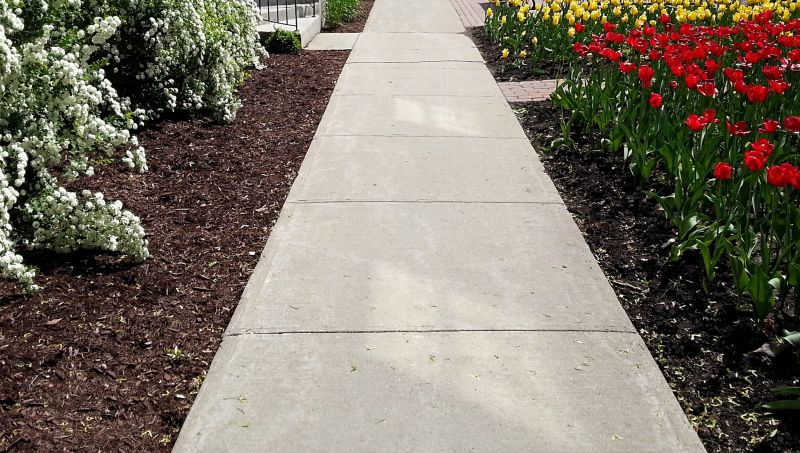Expert Picks of Top Products For Cement Sidewalk Construction
Learn about the most trusted tools and materials that help achieve perfect sidewalk surfaces every time.
 Installing a cement sidewalk requires careful planning and the right selection of products to ensure durability and safety. From preparing the ground to finishing the surface, a variety of tools and materials come into play. Properly selecting these products can facilitate a smoother installation process and help achieve a professional-looking result. Whether undertaking a small residential project or a larger commercial installation, understanding the options available is essential.
Installing a cement sidewalk requires careful planning and the right selection of products to ensure durability and safety. From preparing the ground to finishing the surface, a variety of tools and materials come into play. Properly selecting these products can facilitate a smoother installation process and help achieve a professional-looking result. Whether undertaking a small residential project or a larger commercial installation, understanding the options available is essential.
Top Overall Option
Concrete Curing Compound
A high-quality concrete curing compound offers an effective way to retain moisture during the curing process, which is crucial for achieving optimal strength and durability. It forms a protective film over the freshly poured concrete, reducing the risk of cracks and surface imperfections. This product is versatile and suitable for various sidewalk projects, providing a consistent finish and helping to extend the lifespan of the installation.
Types of Products For Cement Sidewalk Installations
Concrete Mixers
Portable or stationary mixers designed to blend cement, sand, gravel, and water into a uniform concrete mixture, facilitating efficient pouring.
Form Boards
Reusable or disposable forms made of wood, metal, or plastic that shape and contain the concrete during pouring and setting.
Reinforcing Mesh
Steel or fiberglass mesh used to reinforce the concrete, helping to prevent cracking and improve structural integrity.
Vibrators
Tools used to remove air bubbles from freshly poured concrete, ensuring a dense and even surface.
Jointing Tools
Specialized tools for creating control joints in the concrete to manage cracking and improve longevity.
Curing Compounds
Liquid or spray products applied to freshly poured concrete to retain moisture and promote proper curing.
Finishing Trowels
Tools used to smooth and level the surface of the concrete for a clean finish.
Sealers
Protective coatings applied after curing to prevent stains, water infiltration, and surface wear.
Leveling Rakes
Tools that help spread and level concrete during pouring to achieve an even surface.
Ground Preparation Equipment
Compactors, shovels, and grading tools used to prepare the site before pouring concrete.
Edge Guides
Devices that assist in maintaining consistent sidewalk edges during pouring and finishing.
Expansion Joint Material
Materials like foam or rubber used to fill expansion joints, allowing for movement and reducing stress.
Drainage Products
Grates and drainage channels integrated into the sidewalk to manage water runoff effectively.
Concrete Admixtures
Additives that modify properties of the concrete, such as setting time, workability, or durability.
Surface Texturing Tools
Tools to create slip-resistant textures on the concrete surface for safety.
Popular Choices
A versatile mixture suitable for pouring sidewalks, offering workable consistency and setting properties.
Reusable forms that help create clean, straight edges and consistent thickness for sidewalks.
Steel mesh that enhances the structural stability of the concrete surface.
A handheld or mounted device used to eliminate air pockets during pouring.
Pre-cut or formed joints to control cracking and improve surface longevity.
A product that helps retain moisture on the concrete surface during curing.
A set of finishing tools to achieve smooth and level surfaces.
A protective coating to seal the surface and prevent stains and wear.
Tools like screeds and rakes to ensure an even surface during placement.
Compactors and shovels for preparing the ground before pouring concrete.
Flexible foam strips used to fill expansion joints and accommodate movement.
Components integrated into the sidewalk to facilitate water runoff.
Additives that modify setting time, workability, or durability of the concrete.
Tools to create slip-resistant textures on the finished surface.
The foundation of a successful sidewalk installation begins with site preparation. This involves removing debris, leveling the ground, and setting a stable base. For this stage, various tools such as compactors, shovels, and grading rakes are commonly used. Once the base is prepared, forms are set to shape the concrete. These forms can be made of wood, metal, or plastic, and they help define the edges and thickness of the sidewalk.
Pouring and finishing the concrete is the core part of the process. During this phase, products like concrete mixers, curing compounds, and finishing trowels are essential. Proper curing products help prevent cracks and ensure the concrete gains strength over time. Additionally, jointing tools are used to create control joints, which help manage cracking and improve the longevity of the sidewalk. Post-installation, sealing products can be applied to protect the surface from stains and wear, extending its lifespan and maintaining aesthetic appeal.
Key Buying Considerations
- Project scale and size to determine the volume of materials needed.
- Type of soil and ground stability to choose appropriate site preparation tools.
- Compatibility of reinforcement materials with the concrete mix.
- Ease of use and handling of tools, especially for DIY projects.
- Weather conditions that may affect curing time and product effectiveness.
- Durability and longevity expectations for the sidewalk surface.
- Compatibility of curing and sealing products with concrete types used.
- Budget constraints and cost-effectiveness of different product options.
- Availability of replacement parts or additional supplies for tools.
- Ease of cleaning and maintenance of tools post-project.
- Environmental conditions such as exposure to water or freeze-thaw cycles.
- Local building codes or regulations that may specify certain materials or processes.
- Experience level with concrete work to select user-friendly products.
- Potential need for customization, such as textured surfaces or decorative finishes.
- Safety features of tools, including ergonomic design and protective guards.
